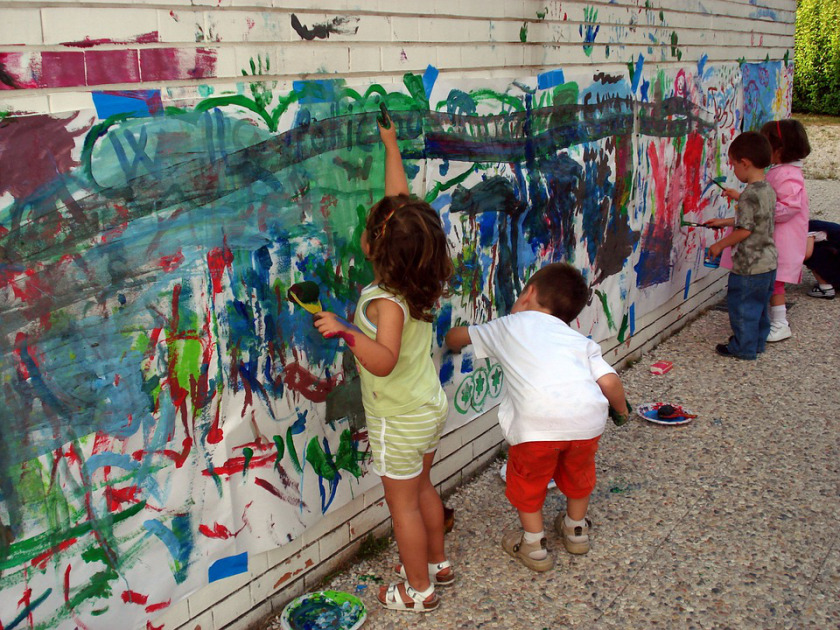The Obermann Center supports the DeLTA Center’s projects in the area of children’s learning and development through the Laura Spelman Rockefeller grant. Members of the DeLTA Center and their community partners—professionals from the Iowa Children’s Museum, Iowa 4Cs, Neighborhood Centers of Johnson County, Iowa City Community School District, Foundations in Learning, Children’s Center for Therapy, Johnson County Empowerment, and SourceMedia—recognize the importance of play and shared reading in early learning.
The following interdisciplinary grants were made available by Spelman-Rockefeller funds in the past year:
Science Text Support Modifications for Postsecondary Students with Intellectual and Developmental Disabilities
Investigators: Erica Kaldenberg (UI Reach Program) and Meredith Saletta (Communication Sciences & Disorders)
Erica Kaldenberg and Meredith Saletta are conducting two studies spanning two laboratories to address the need for educational materials that are appropriate for adults with intellectual or developmental disabilities (IDD). Most existing educational materials at the college level are too complex at word and sentence level to be accessible to these learners, yet more students are enrolling in postsecondary education programs on college campuses. The investigators hope to modify existing college-level science texts in order to make them accessible to students with IDD who are attending a postsecondary education program. This project is particularly important from a clinical standpoint (as the resulting materials are likely to be relevant in introducing and exploring related content) and from an educational research perspective, as the data will provide insight on effective text supports for adults with IDD.
Embedded Instructional Gesture and Early Shape Learning: A Comparison of Seeing and Doing
Student: Nicole Hendrix
Mentors: Kristen Missall (University of Washington), Susan Cook (Psychology, CLAS) and Megan Foley-Nicpon (UI College of Education)
As early as kindergarten, U.S. students struggle with mathematical learning. Instructional strategies have been shown to increase geometric knowledge in early childhood, particularly as it relates to shape learning. Yet existing educational research has tended to neglect the role of hand gesture embedded in instruction, an instructional component shown to enhance mathematical learning. Few studies that intentionally incorporate gesture have been designed to impact preschool students’ math knowledge. This study examines the potential influences of gesture on strategy use and task performance to contribute to research on early math instruction and gestural influences in learning, bringing together separate yet related fields of inquiry.
Causal Adverbial Production, Language Intervention, and Science Learning
Student: Maura Curran
Mentors: Amanda Van Horne (Communication Sciences & Disorders, CLAS), Youjia Hua (UI College of Education)
Language serves as an essential resource to learn about cause and effect throughout childhood. Causal adverbial sentences use causal conjunctions (e.g., because, so) to join two clauses to express cause-effect relationships. Grammatical skill and content knowledge interact throughout the development of causal adverbials. Preschool children demonstrate high accuracy on comprehension and production of familiar causal relationships, such as common social emotional events. Children with specific language impairment are at risk for failure in these academically relevant language skills. This study examines the effect of language intervention for causal adverbials on production of casual adverbials for familiar and unfamiliar content, and the potential influence of such intervention on acquisition of academic content during science instruction for young students with specific language impairment (SLI). This will identify the potential for intervention to positively affect causal language and academic skills, as well as clarify the relationship between content knowledge and grammatical skill.
